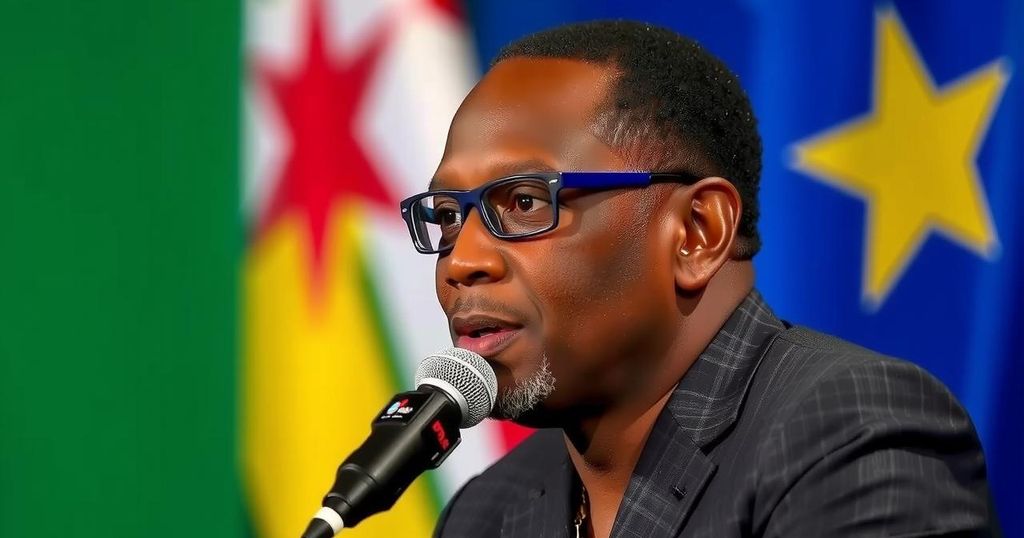Mauritius Prime Minister Signals Likely Election Defeat for Ruling Coalition

Mauritius’ Prime Minister Pravind Jugnauth acknowledged that his ruling coalition is likely facing a major election defeat, as vote counting continues. Faced with corruption allegations and criticism, his party appears to be further challenged by the opposition, led by former Prime Minister Navin Ramgoolam. Final election results are expected soon, determining the new parliamentary leadership for the nation with over one million registered voters.
In a significant turn of events, Prime Minister Pravind Jugnauth of Mauritius has publicly acknowledged that his ruling coalition is likely to experience a substantial defeat in the recent parliamentary elections. Speaking to reporters, Jugnauth, who has held office since 2017, noted the rejection of his party, the Militant Socialist Movement, amidst ongoing vote counting. Despite his government’s efforts to secure another five-year term, the coalition faced mounting criticism and corruption allegations following the leak of incriminating recordings involving politicians and business leaders. The opposition coalition, led by former Prime Minister Navin Ramgoolam, appears to be on track to achieve victory, though they have not yet issued a formal statement regarding the election results. Reflecting on the situation, Jugnauth remarked, “The population has decided to choose another team. I wish good luck to the country.” The final determination of the election outcomes is anticipated later today. With over one million registered voters participating in this twelfth election since the nation achieved independence from Britain in 1968, citizens are casting ballots for 62 parliamentary seats. The party or alliance that secures a majority will establish the government and appoint the prime minister. Mauritius, situated approximately 2,000 kilometers off the coast of East Africa, has cultivated a robust economy driven by sectors such as finance, tourism, and agriculture. This economic vitality allowed the country to briefly attain high-income status in 2020, though the COVID-19 pandemic subsequently had a detrimental impact on its vital tourism industry.
Mauritius has a significant democratic history, having gained independence from Britain in 1968. Since then, it has held regular elections, establishing a multiparty system. The Militant Socialist Movement, led by Prime Minister Pravind Jugnauth, faces challenges including allegations of corruption and dissatisfaction with governance, exacerbated by recent leaked recordings. The current political landscape is marked by intense competition, particularly between Jugnauth’s coalition and the Alliance for Change, led by former Prime Minister Navin Ramgoolam. Furthermore, Mauritius has earned a reputation for its stable and growing economy, despite facing setbacks, notably during the global COVID-19 pandemic.
The recent parliamentary elections in Mauritius may signal a significant political shift as Prime Minister Pravind Jugnauth anticipates a considerable defeat for his ruling coalition. As the election results are yet to be finalized, the implications of this electoral contest will likely impact the country’s governance and economic recovery efforts. The political landscape is rapidly evolving, with a potential new leadership poised to address ongoing challenges facing the nation.
Original Source: apnews.com






